20 Anxiety Signs Parents Often Miss
Unspoken signs of anxiety in children that parents often overlook.
- Sophia Zapanta
- 5 min read
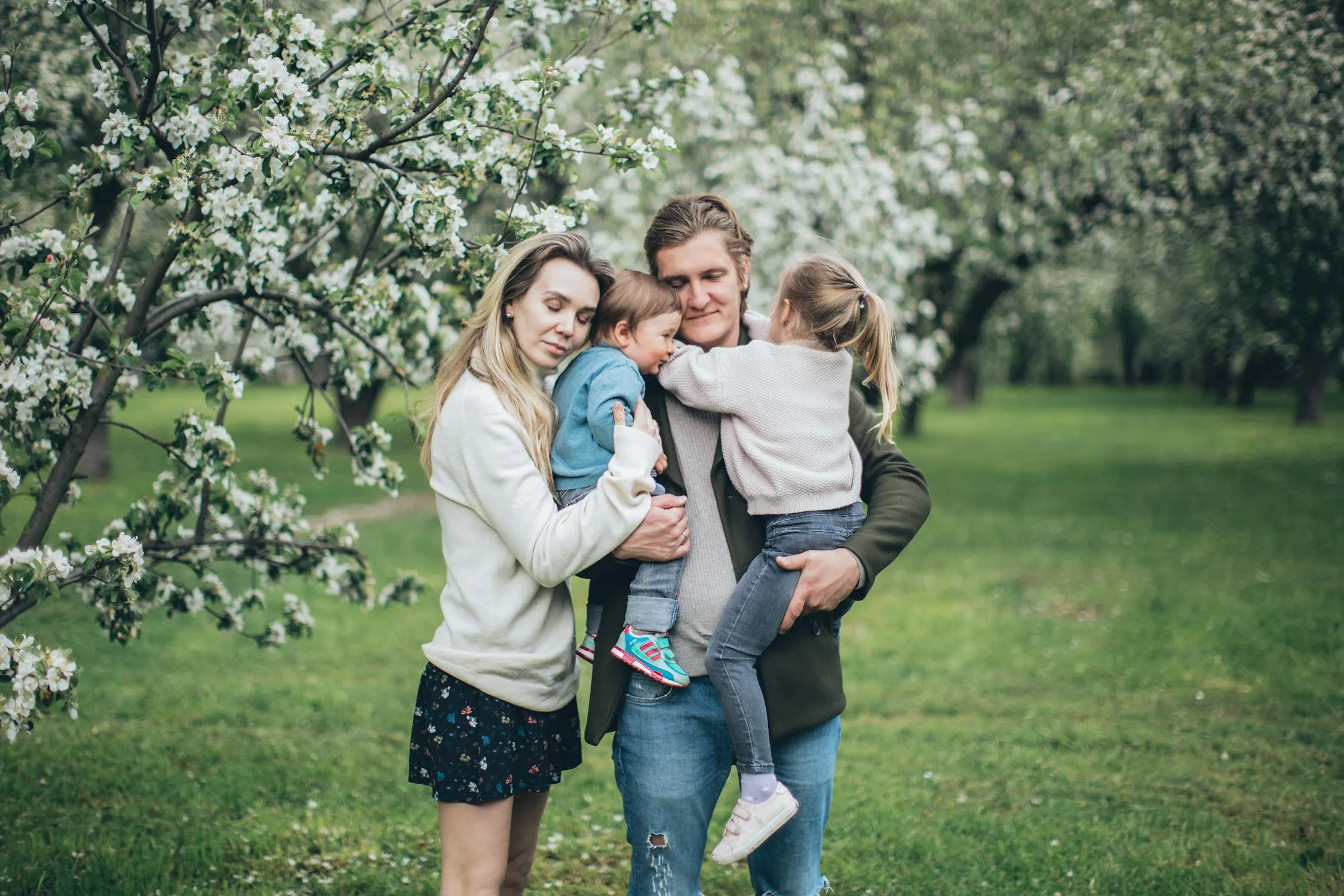
The new generation of children often struggles to find the rights words and may feel too shy to express their feelings. As a result, the parents are left unaware of what their children are experiencing on a day-to-day basis. That’s why this article shares the 20 anxiety signs parents should look out for to fully be aware of their children’s mental well-being.
1. Mood Swings
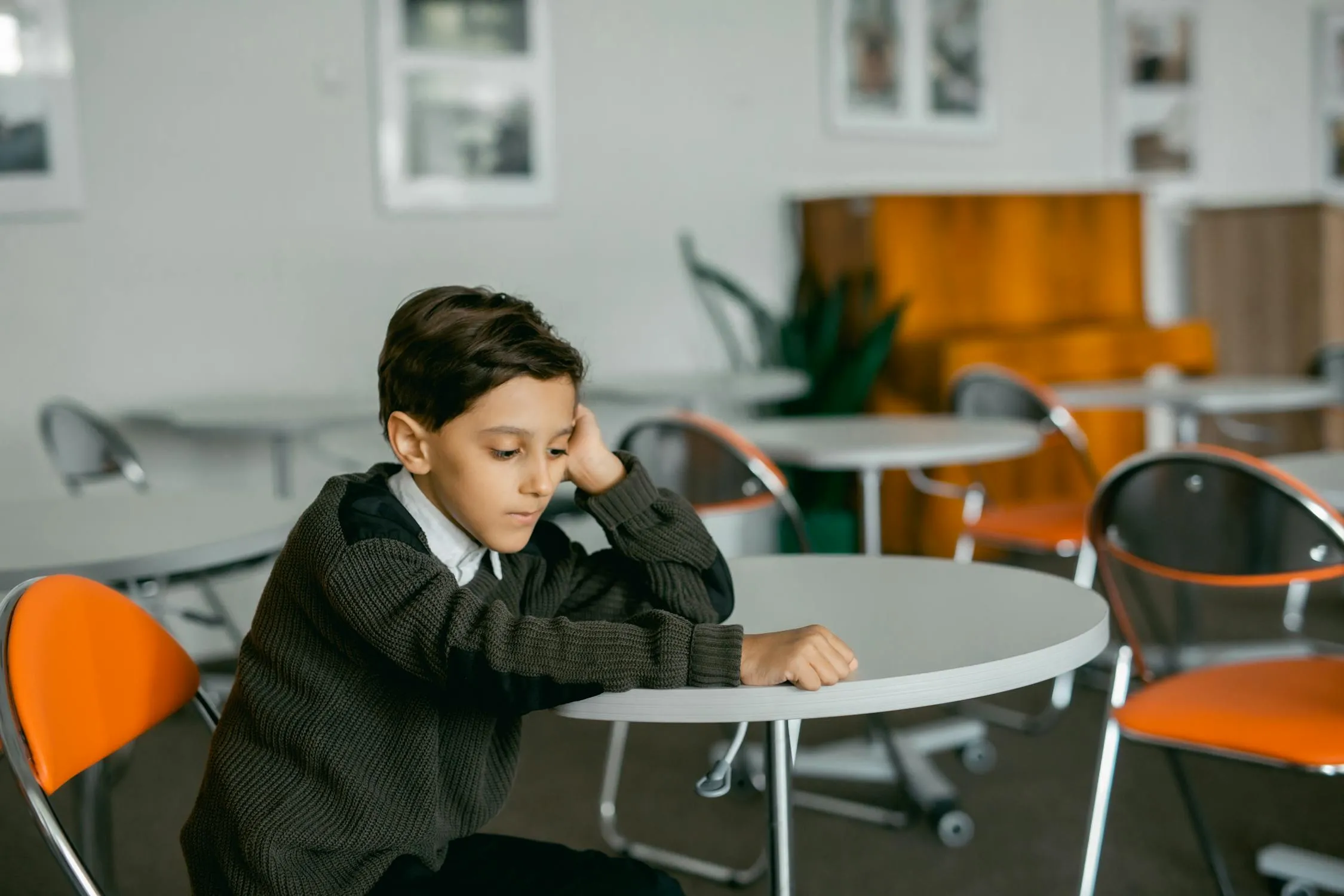 Mikhail on Pexels
Mikhail on Pexels
When children go from being hyper to usually quiet, it may be a hidden sign of anxiety. These mood swings often happen unexpectedly, especially during and after fear, sadness, and nervousness.
2. Avoiding Eye Contact
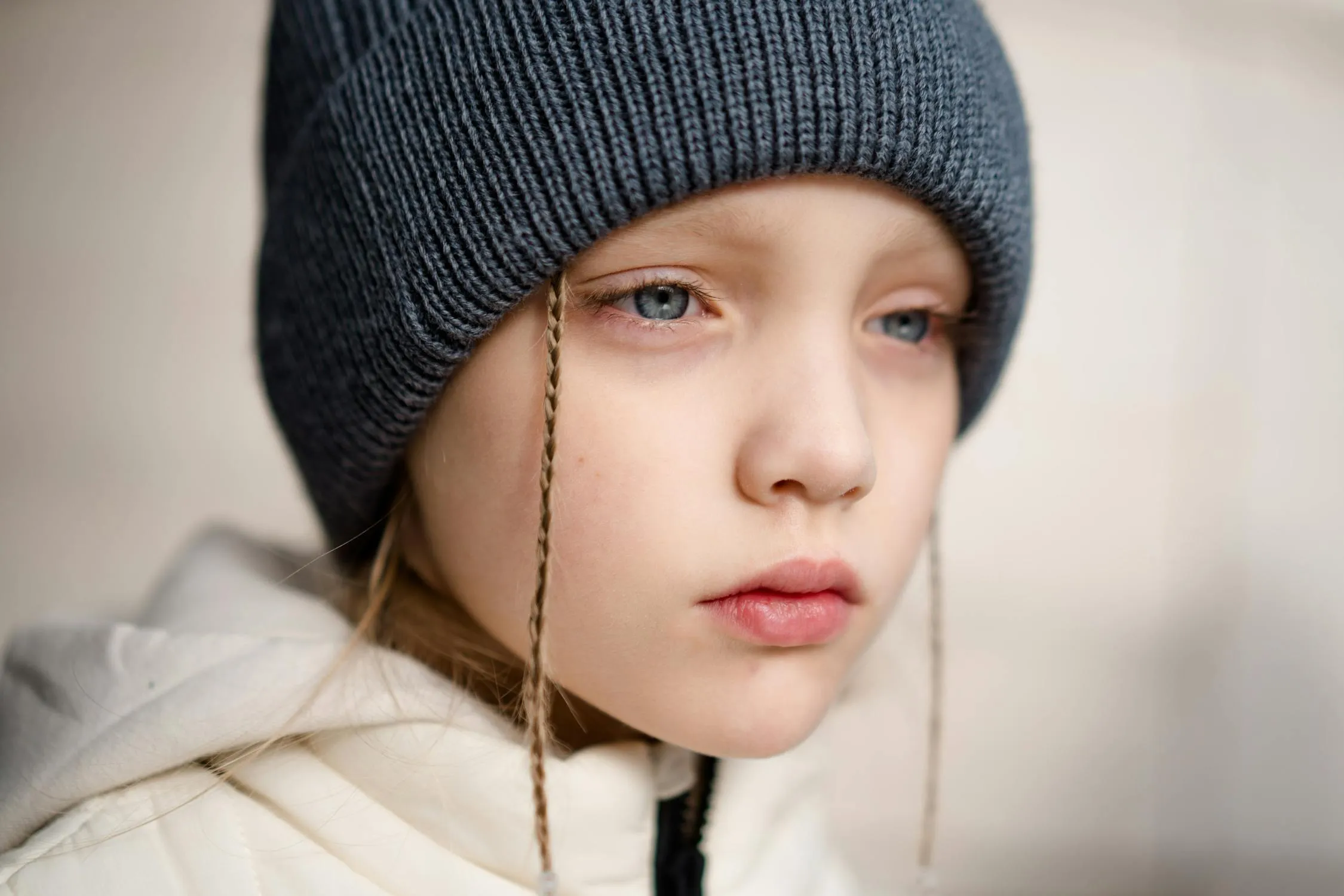 Ron on Pexels
Ron on Pexels
Children feel anxious in social settings, sensing that they are under the judgmental gaze of the people around them. Their fear of being judged explains why they avoid eye contact, as it may be too uncomfortable.
3. Overly Apologetic
 Kindel Media on Pexel
Kindel Media on Pexel
Suffering from anxiety can make someone apologize a lot, even when they’re not at fault. This stems from a persistent worry that they might have upset someone or have done something wrong.
4. Less Communicative
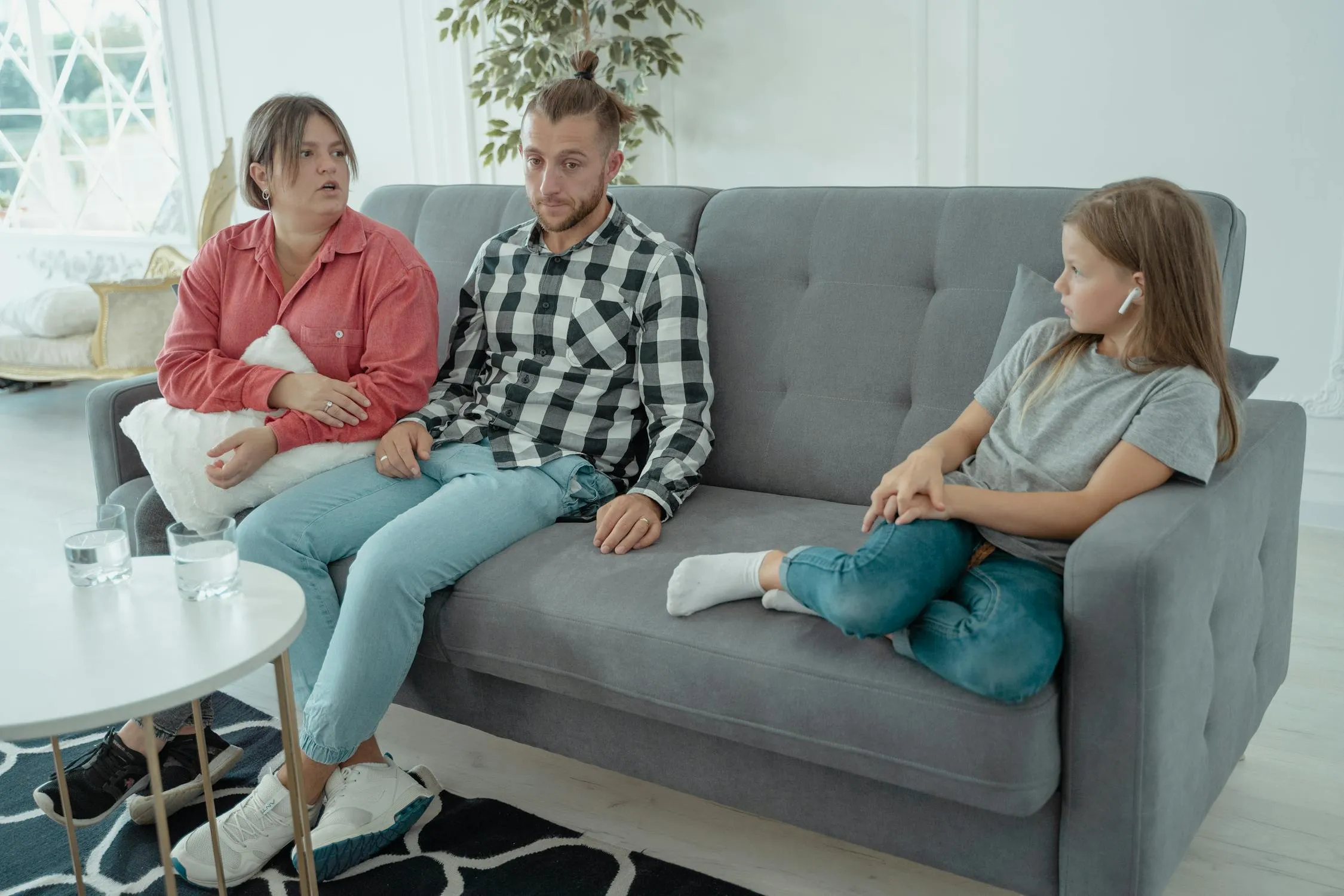 Tima on Pexel
Tima on Pexel
Kids suffering from anxiety often struggle to speak their minds due to the intense worry of getting judged. This is why they, most of the time, hold back their thoughts even at times when they need to express themselves.
5. Critical to Oneself
 Andrea on Pexels
Andrea on Pexels
Being self-critical is linked with underlying mental illnesses like anxiety. Children suffering from this find it difficult to put away negative thoughts about themselves, thus seeking to feel the need to prove themselves to others constantly.
6. Highly Skeptical
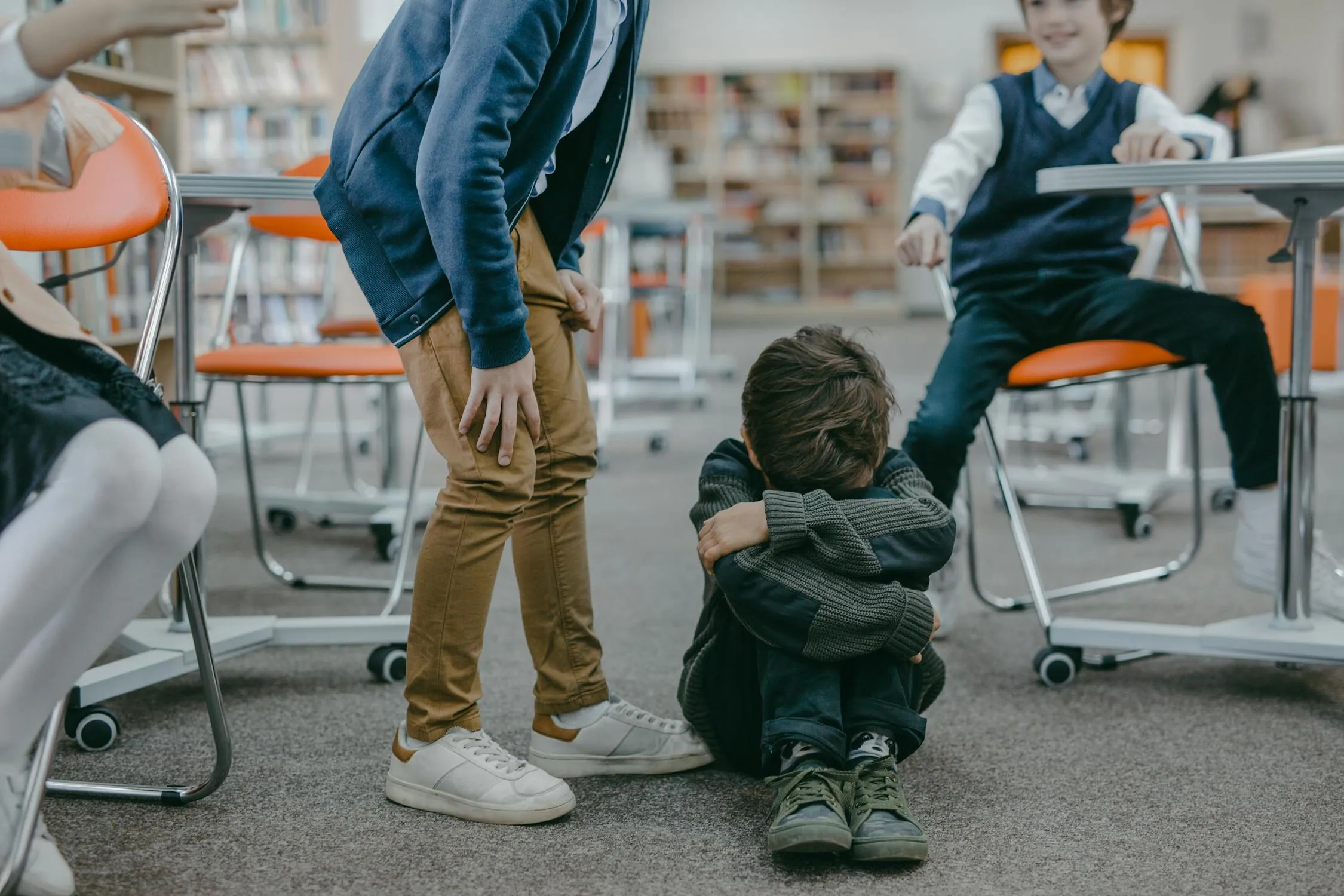 Mikhail on Pexel
Mikhail on Pexel
As a result of a lack of confidence in oneself, kids suffering from anxiety are highly skeptical of how others perceive them. They become overly cautious in their social interactions, leading them to avoid such situations.
7. Always Zoning Out
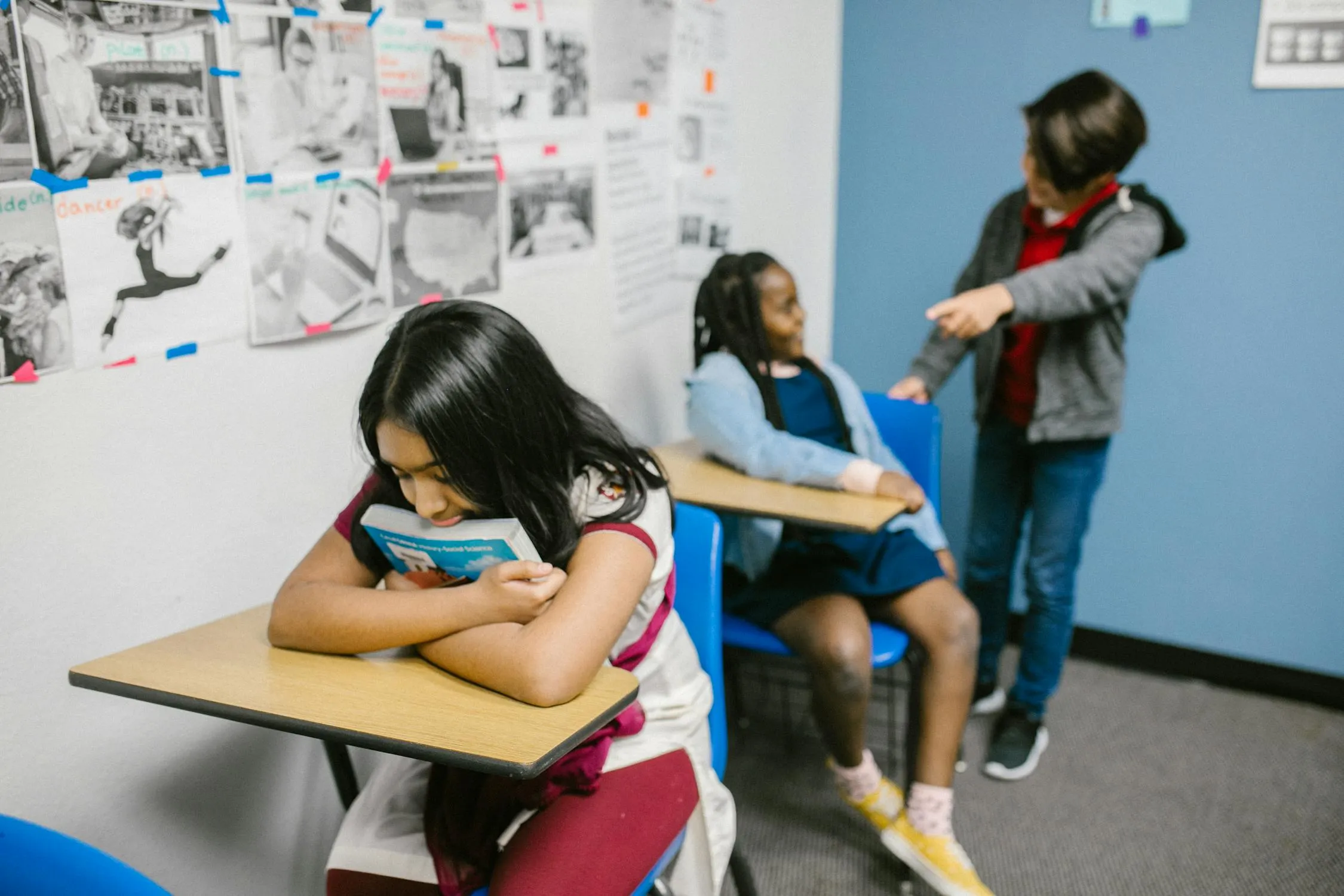 RDNE on Pexel
RDNE on Pexel
If a child tends to zone out a lot during social situations, it may be a sign that their social energy has run out. Kids suffering from anxiety “check out” mentally, most especially when they’re overwhelmed by negative thoughts.
8. Trouble Focusing on Tasks
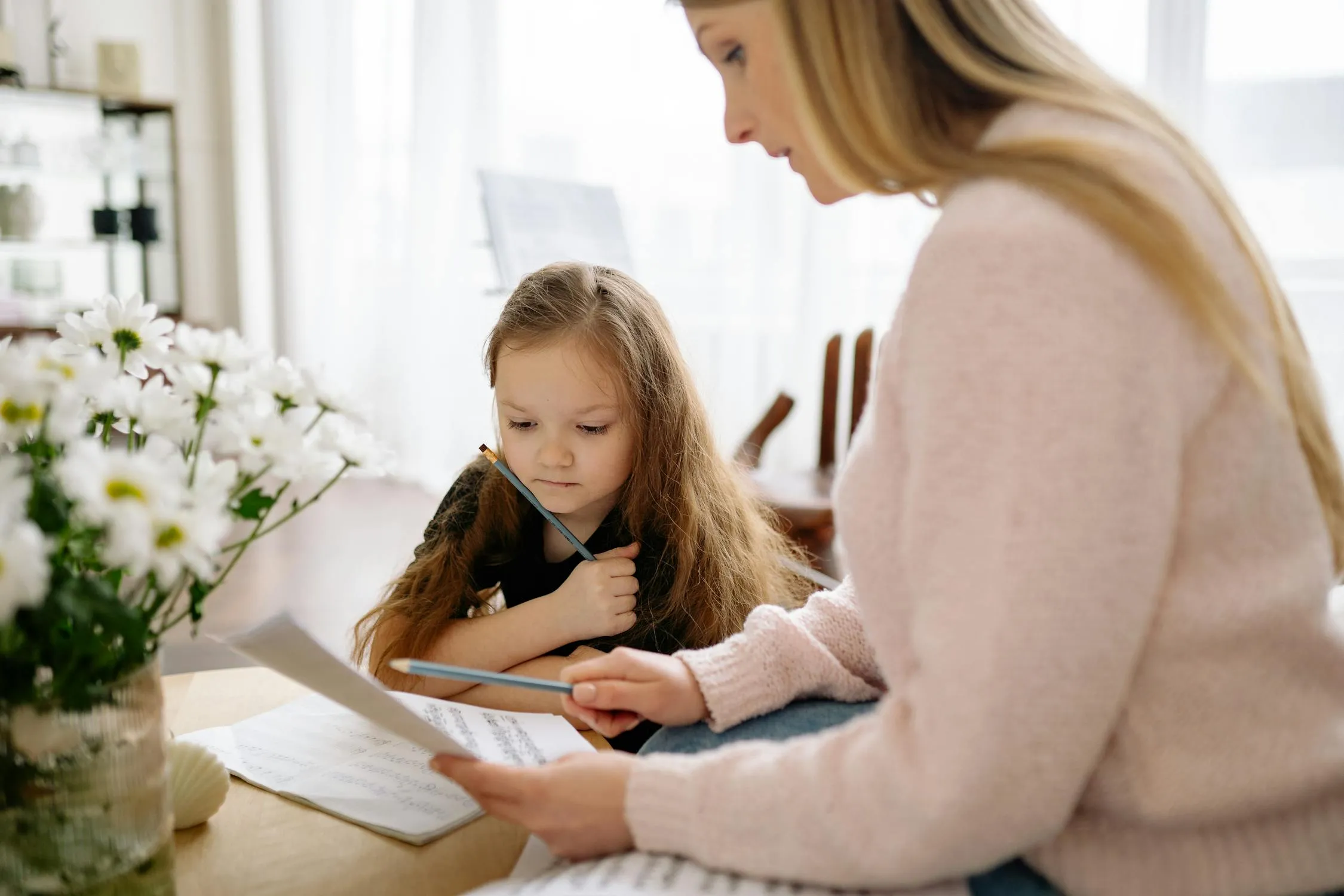 Yan on Pexel
Yan on Pexel
Due to always constant negative thoughts running through their minds, children often have trouble focusing on tasks. This is why they find it challenging to stay engaged, even with activities they typically enjoy.
9. Fear of Making Mistakes
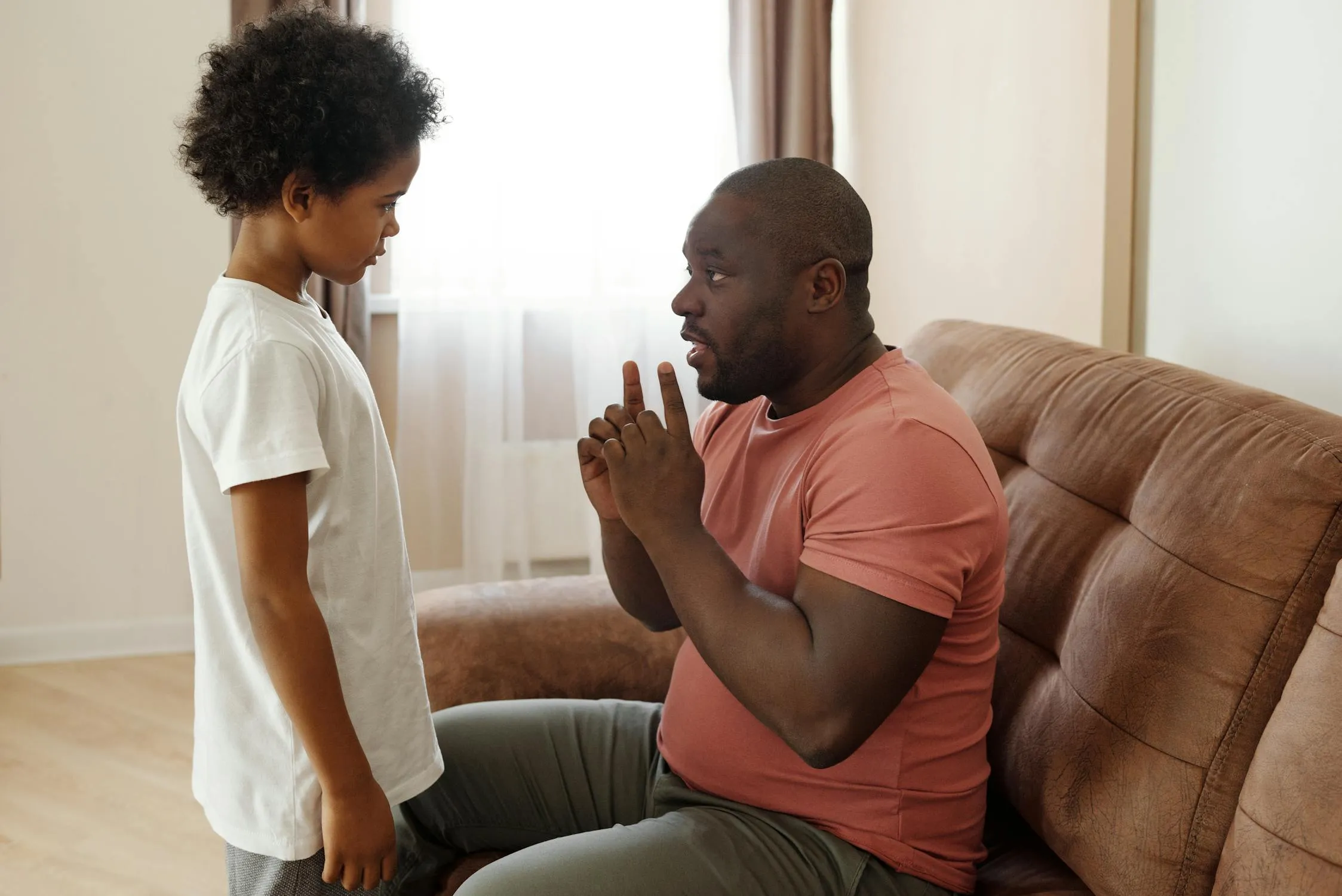 August on Pexel
August on Pexel
Atelophobia, also known as the fear of making mistakes, is a type of anxiety disorder that drives children to avoid certain situations and fixate on perfectionism.
10. Overthinking Things
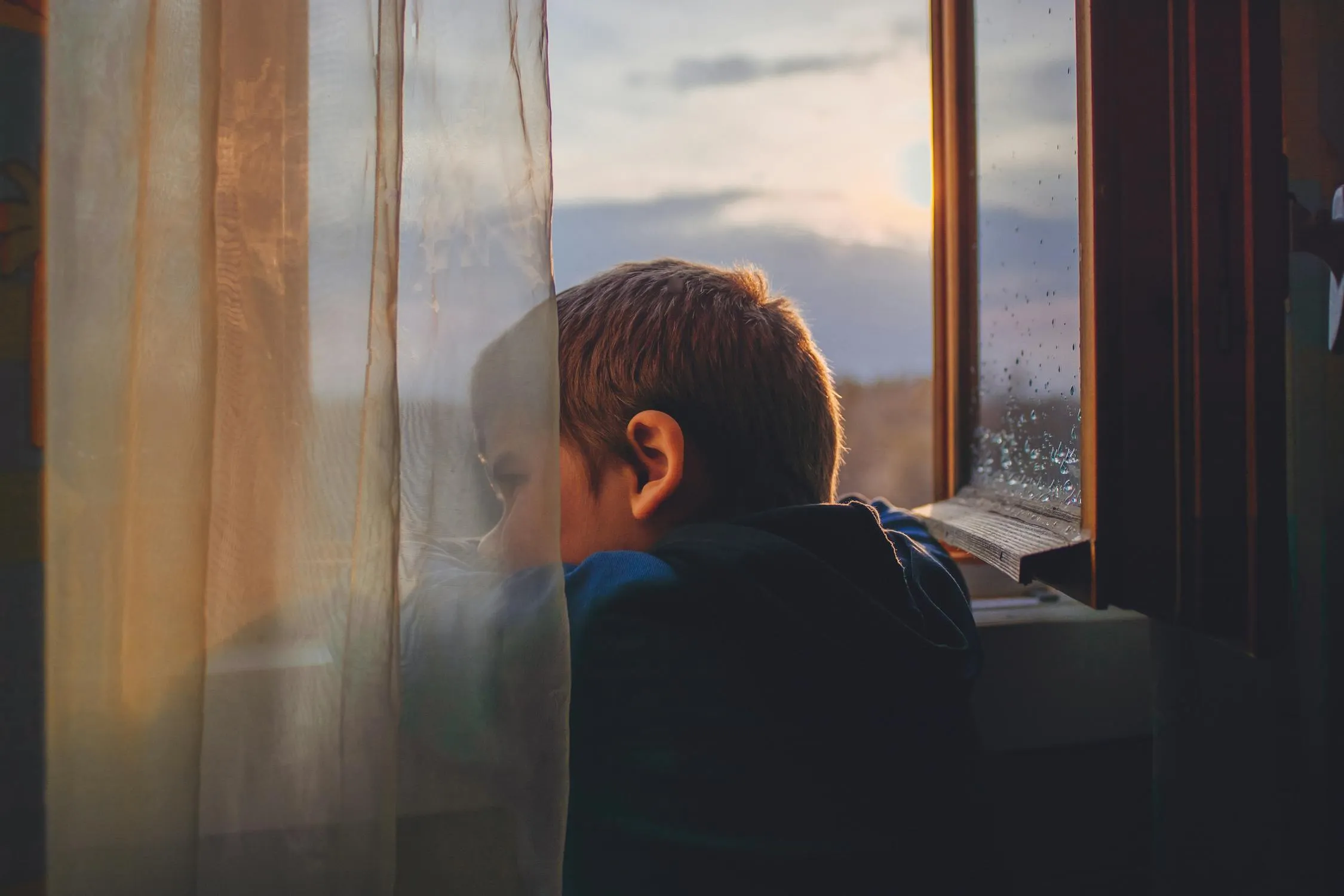 Tanya on Pexel
Tanya on Pexel
Worrying a lot about small things and constantly second-guessing themselves is a sign of anxiety in children. Hence, it is difficult for them to make sound decisions and enjoy the present moment.
11. Cold and Distant to Peers
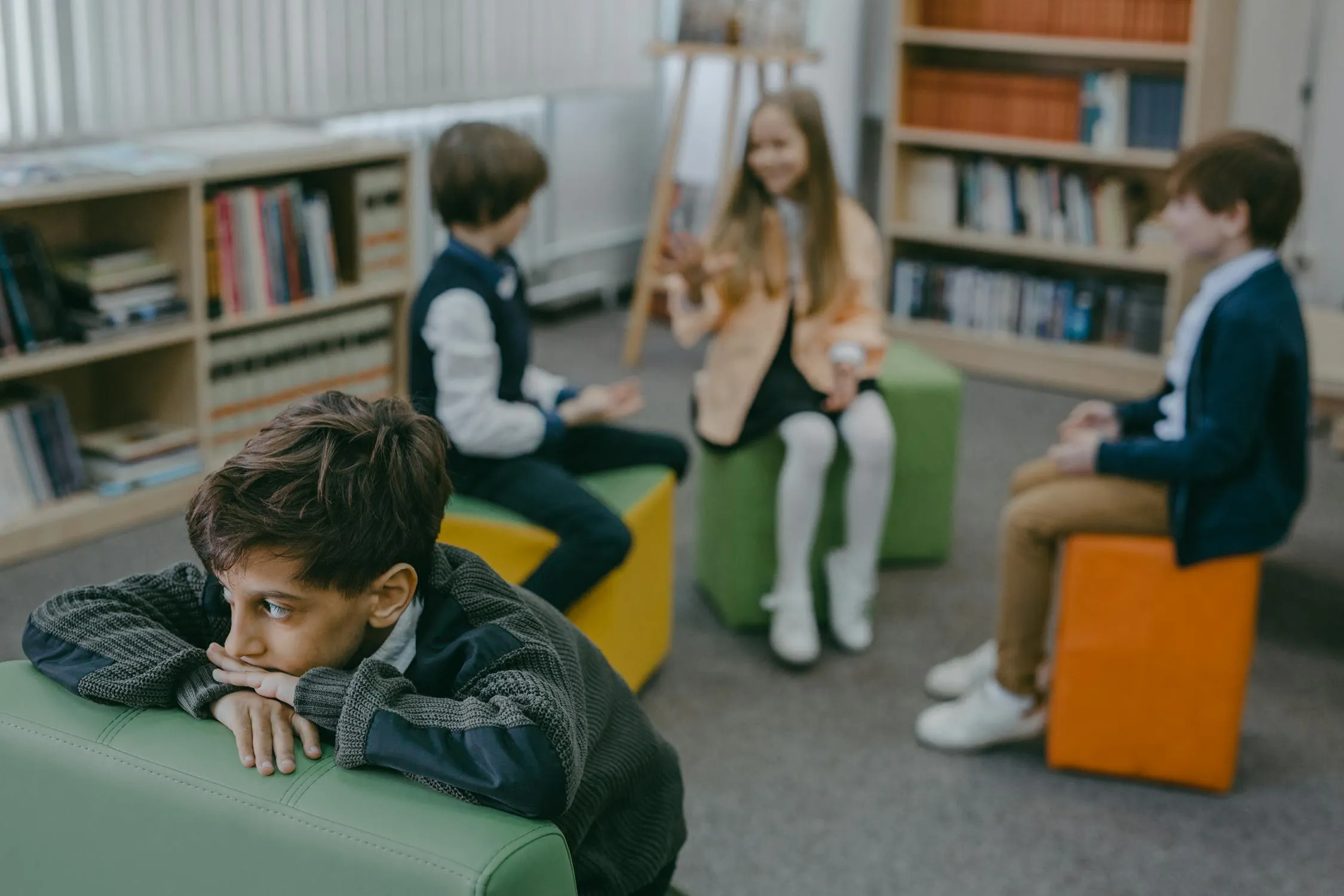 Mikhail on Pexel
Mikhail on Pexel
Anxiety can make kids less friendly with their peers, as they are constantly questioning themselves. They may need to withdraw from social situations, which they see as an escape from reality that they refuse to face.
12. Increased Frustration
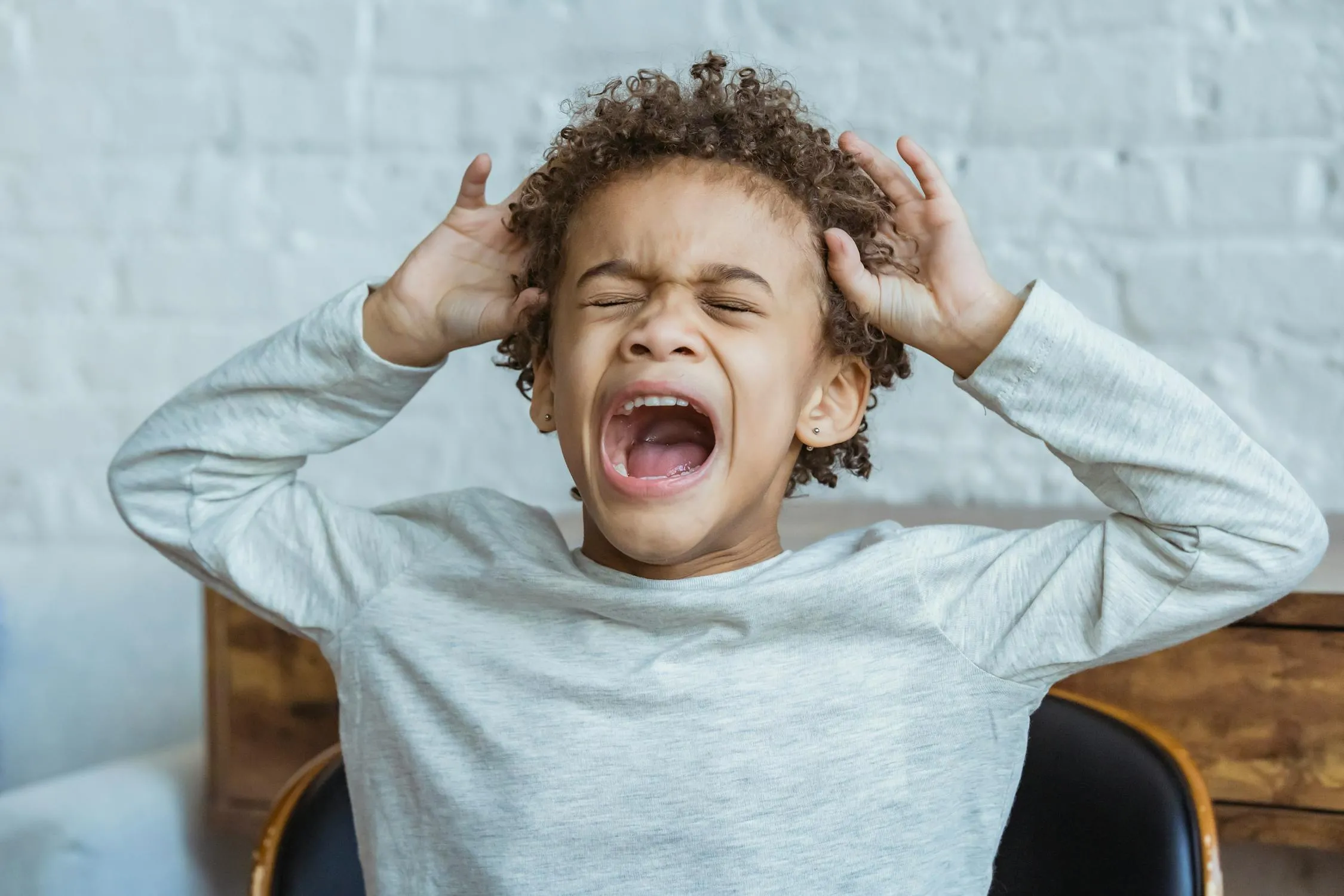 Keira on Pexel
Keira on Pexel
Anxiety can turn to anger if not appropriately addressed. The constant fear and insecurity children feel due to stress can result in emotional outbursts and increased frustration.
13. Trouble Falling Asleeo
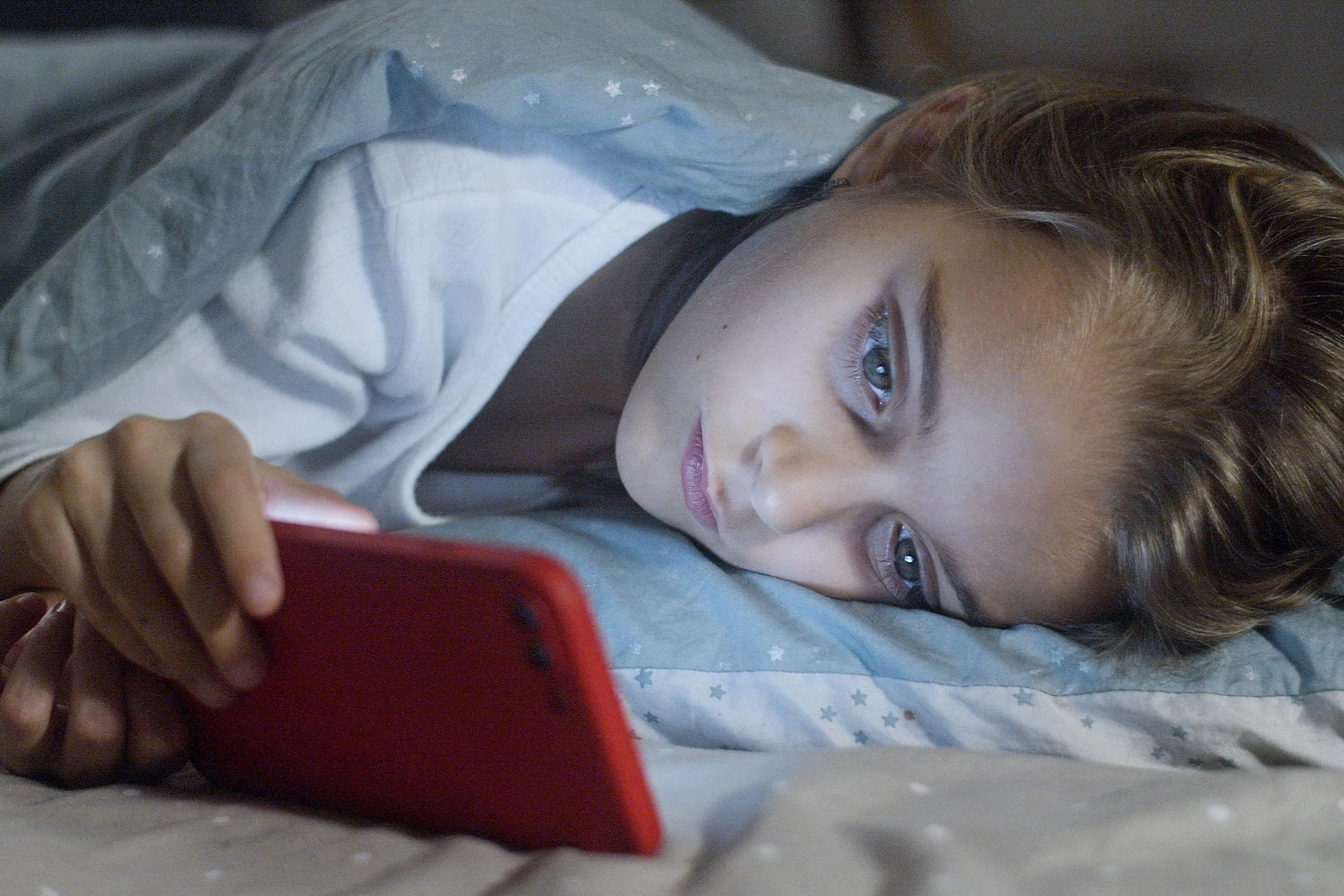 Kampus Production on Pexel
Kampus Production on Pexel
Constantly having anxious thoughts can cause a child trouble falling asleep deeply. Due to excess fear and worry, they’re unable to stay asleep through the night.
14. Changes in Behavior
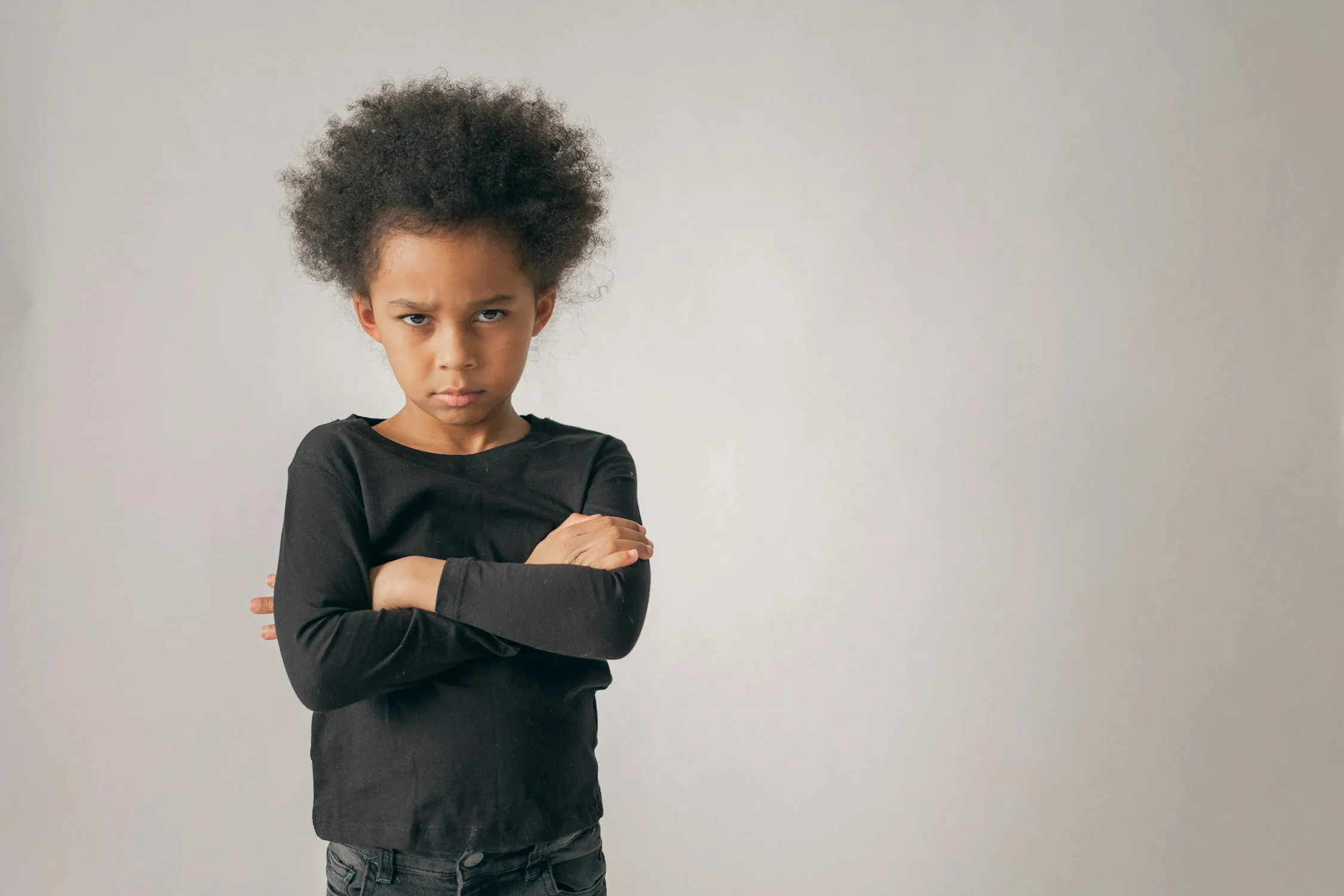 Monstera Production on Pexel
Monstera Production on Pexel
Children who don’t get the desired reassurance from their parents or loved ones may display changes in their behavior due to irritability, frustration, and worry.
15. Frequest Stomachaches and Headaches
 Cottonbro Studio on Pexel
Cottonbro Studio on Pexel
Physical symptoms of anxiety include stomachaches and headaches, which are common signs that a child is severely experiencing fear. These discomforts may appear before stressful situations such as school events and family gatherings.
16. Shortness of Breath
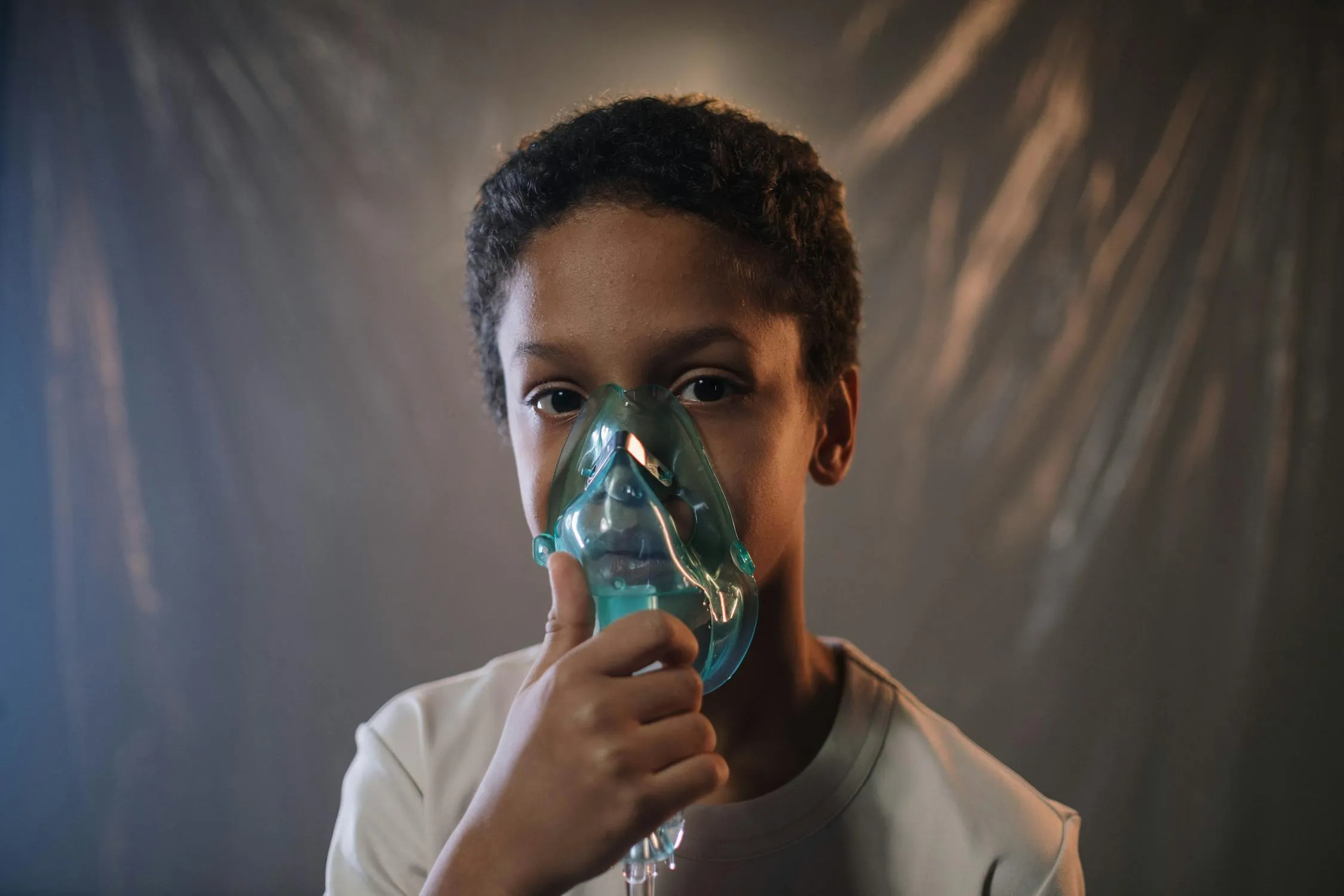 Cottonbro Studio on Pexel
Cottonbro Studio on Pexel
Shortness of breath is a sign of anxiety in children. When faced with fear and stress, they may feel suffocated, as if they’re not getting enough air.
17. Loss of Appetite or Overeating
 Nicola on Pexel
Nicola on Pexel
Children with anxiety may restrict their eating or become very particular about what and when they will eat. They can be unpredictable—sometimes they refuse to eat at all while other times they engage in stress eating.
18. Frequent Shaking
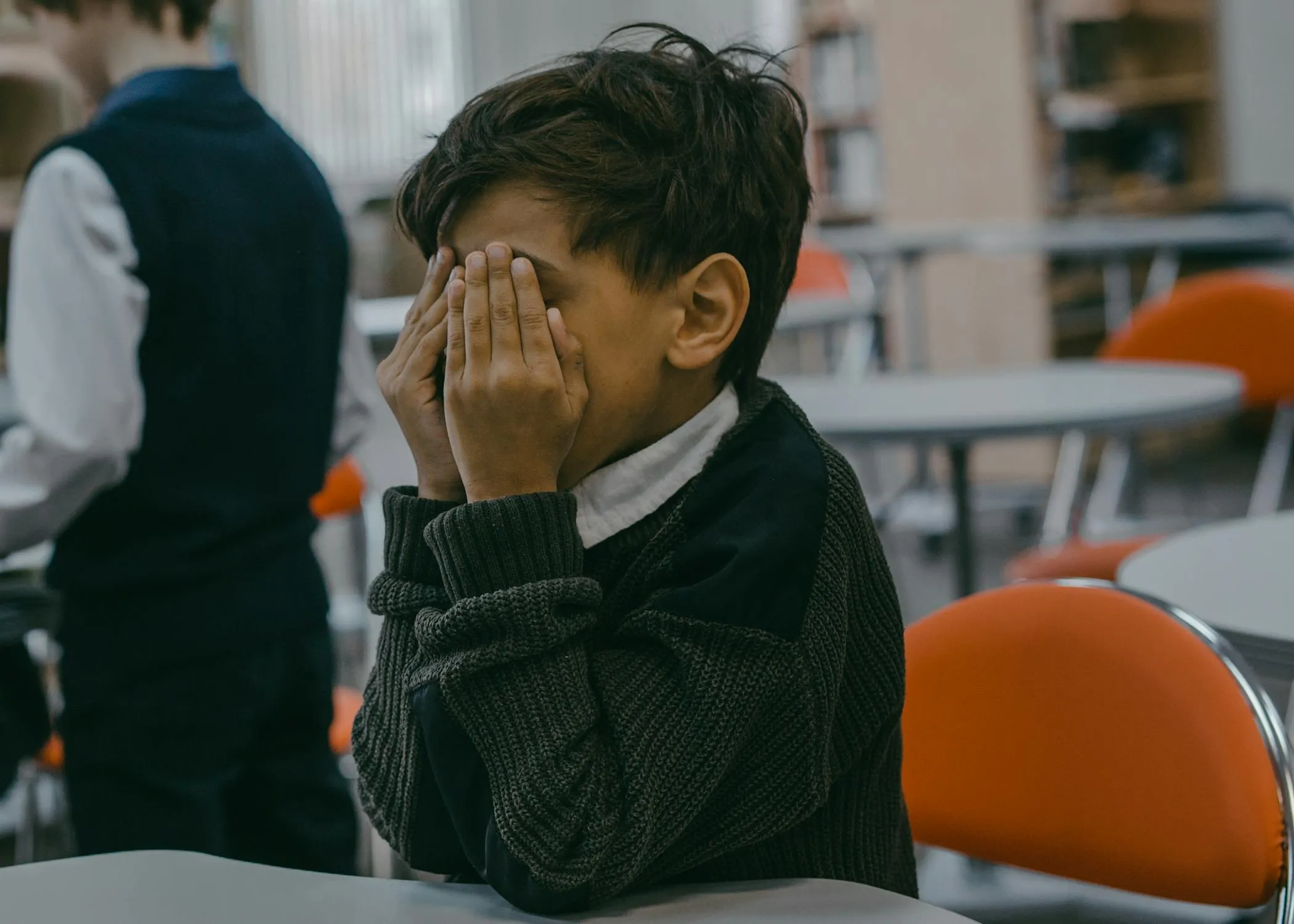 Mikhail on Pexel
Mikhail on Pexel
In some cases, children suffering from anxiety find themselves shaking during difficult times. This natural physical response is a result of intense emotions like fear, anger, and nervousness.
19. Fast Heartbeat
 Gustavo on Pexel
Gustavo on Pexel
Heart palpitations, like pounding or flattering, are a sign of anxiety in children that is often overlooked. When a child feels uneasy or frightened, this physical response happens when in challenging situations.
20. Dry Mouth
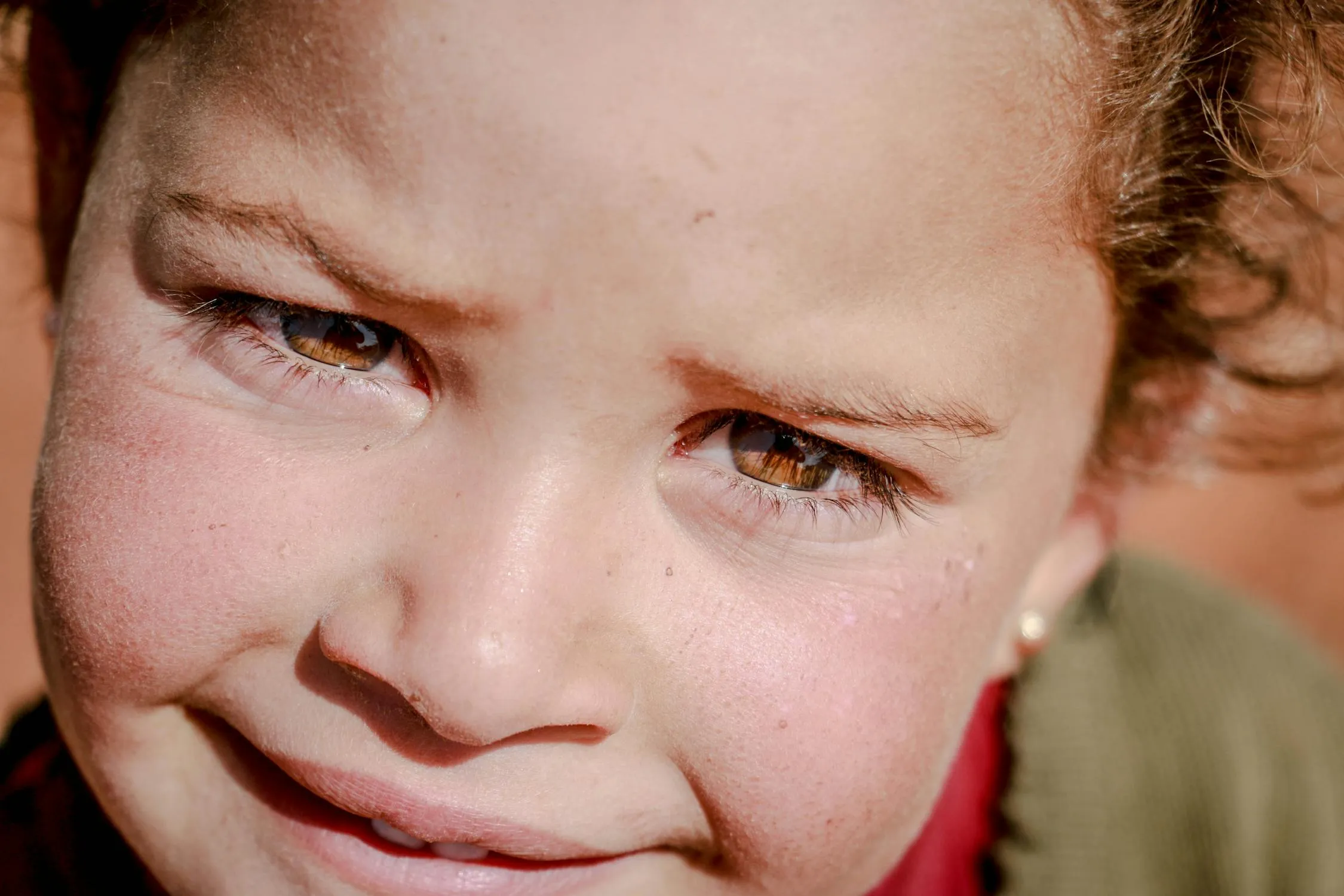 Ahmed akacha on Pexels
Ahmed akacha on Pexels
Feeling anxious or stressed can reduce the flow of saliva in your kid’s mouth, leading to a dry mouth. As the body reacts to stress, it may then trigger changes in the mouth and other body parts.